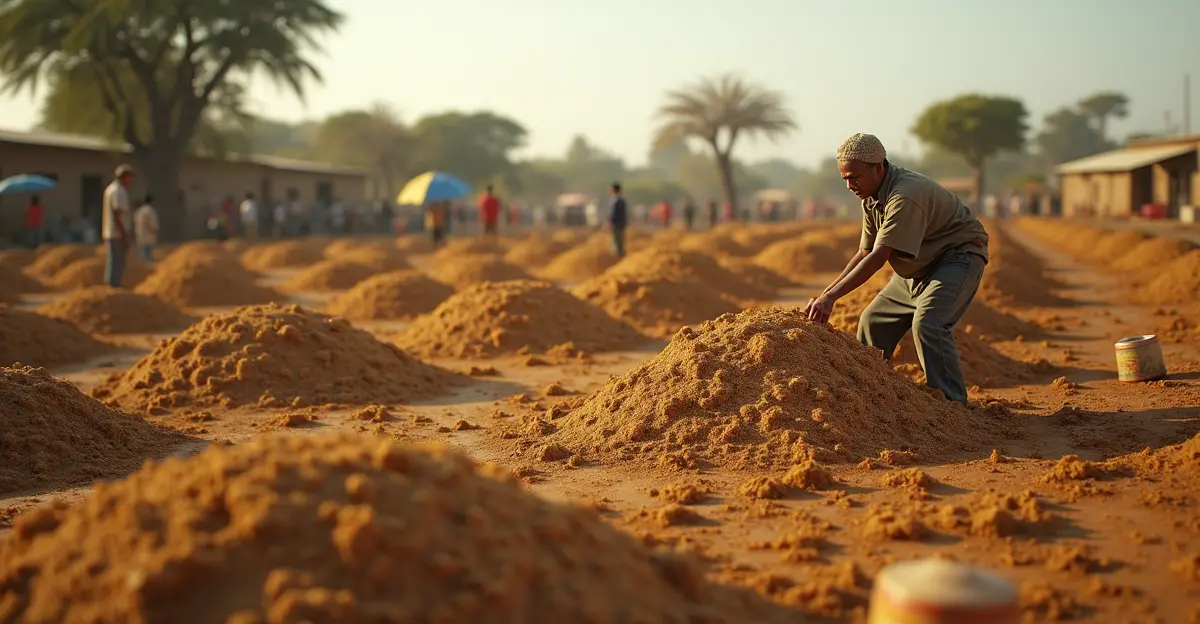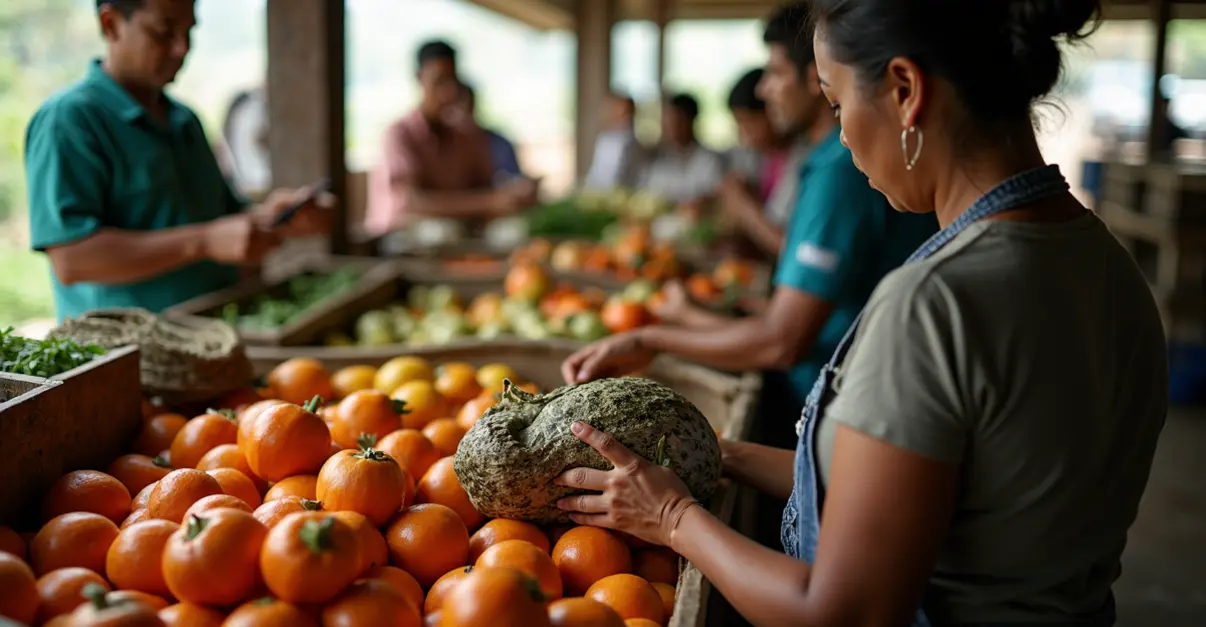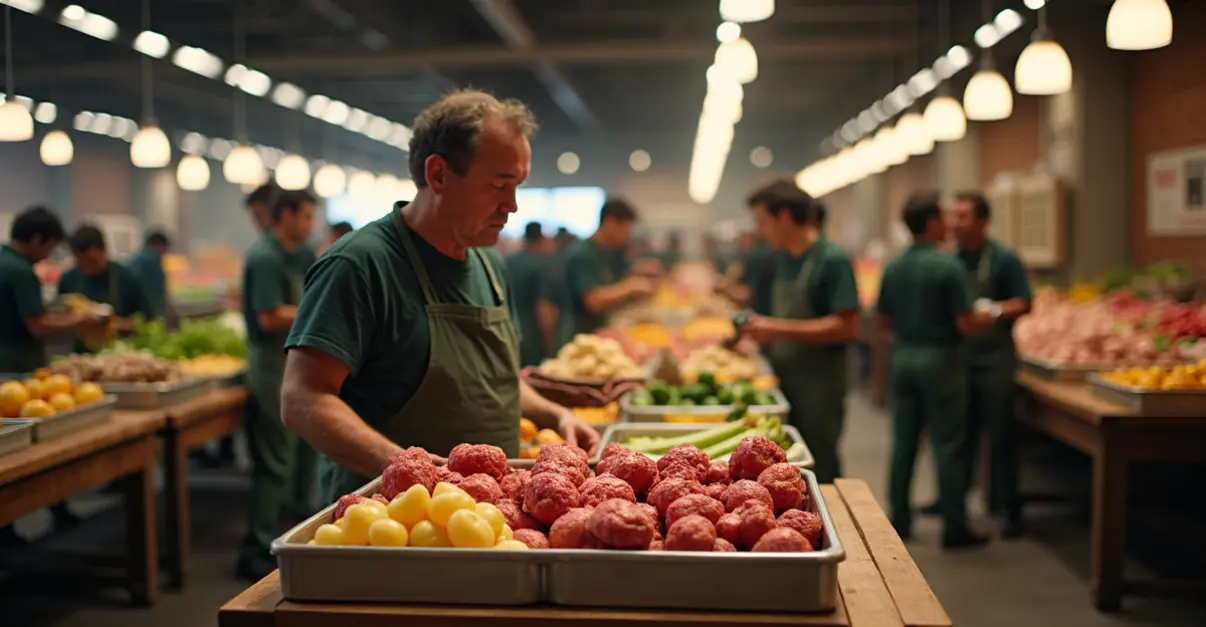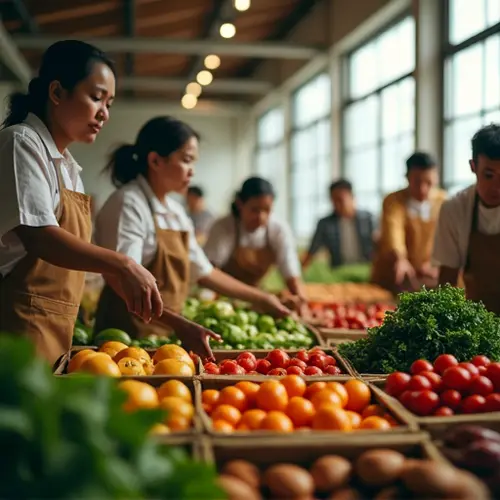Global Food Security Under Threat as Multiple Crises Converge
The world is facing an unprecedented food security crisis in 2025, with severe drought conditions and ongoing conflicts creating a perfect storm that threatens millions of people worldwide. According to recent assessments, food insecurity has reached alarming levels across multiple continents, with climate change exacerbating traditional agricultural challenges.
Drought Conditions Wreak Havoc on Agriculture
Major agricultural regions are experiencing some of the worst drought conditions in decades. The Amazon basin, Australia, the Sahel region, and India have all reported significantly reduced crop yields due to prolonged dry spells. "We're seeing drought patterns that are more extreme and less predictable than ever before," stated Dr. Elena Rodriguez, a climate scientist at the International Climate Research Institute. "Climate change has fundamentally altered traditional weather patterns, making it increasingly difficult for farmers to plan and maintain stable food production."
Conflict Zones Face Critical Food Shortages
Ongoing conflicts in various regions have severely disrupted food supply chains and agricultural production. The continued tensions between Russia and Ukraine, two major global grain exporters, have created ripple effects throughout international markets. "When breadbasket regions become conflict zones, the entire global food system suffers," explained Mark Thompson, Director of Emergency Response at the World Food Programme. "We're seeing price spikes and supply chain disruptions that affect the most vulnerable populations first and most severely."
Economic Impacts and Rising Food Prices
The combination of drought and conflict has led to significant increases in global food prices. Staple crops such as wheat, corn, and rice have seen price increases of 15-30% compared to last year, putting additional strain on households already struggling with economic challenges. The economic impacts extend beyond direct food costs, affecting transportation, energy, and overall economic stability in many developing nations.
Humanitarian Response and Long-term Solutions
International organizations are mobilizing emergency response efforts, but experts warn that short-term solutions must be complemented by long-term strategies. "We need to invest in climate-resilient agriculture and develop more robust food distribution systems," said Sarah Chen, Food Security Analyst at the United Nations. "This crisis demonstrates that our current food systems are vulnerable to multiple simultaneous shocks."
Researchers are advocating for increased investment in drought-resistant crops, improved water management systems, and enhanced early warning systems for food security threats. The situation remains critical, with millions of people facing acute food insecurity and requiring immediate assistance.

 Nederlands
Nederlands
 English
English
 Deutsch
Deutsch
 Français
Français
 Español
Español
 Português
Português










